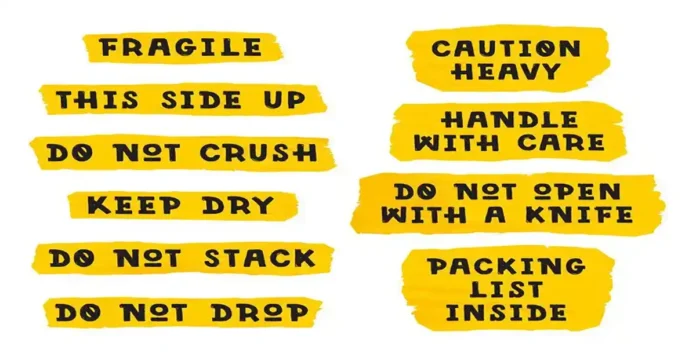Planning a move can be both exciting and daunting, but avoiding moving mistakes is key to ensuring a stress-free relocation. Here, in this article, we have provided the details of errors that one can avoid while doing the relocation. Understanding these pitfalls and implementing the best method can give you a smooth transition to your new place.
This begins with the planning, and foresight, from packing mistakes to logistical issues, each can be avoided for a successful movement. Whether you’re moving across town or to a new city, the insights shared here will empower you to navigate the complexities of relocation with confidence.
5 Moving Mistakes to Avoid
From packing woes to logistical hiccups, navigating a move requires careful planning and attention to detail. This guide is designed to help you identify and steer clear of five of the most prevalent moving mistakes. By addressing these challenges head-on, you’ll be better equipped to streamline the moving process and minimize disruptions.
Below you’ll find five pointers to keep in mind for avoiding the most easily committed mistakes while moving:
Decluttering
Decluttering is especially relevant for hoarders and people who love to collect stuff for sentimental reasons.
Their storerooms are chock-full of items that they bought or were gifted 1-2 or even 3-4 years before but never got around to using. And whenever its time for annual Diwali cleaning, they expertly procrastinate going through their stuff to decide what to keep and what not to.
When you are moving, rectify this mistake once and for all. Do not keep unnecessary items since you will have to pay for moving them. Get rid of them and save up on charges that can easily be avoided.
So, before people from the moving and packing company come to take inventory of your items, take inventory of them yourself and get rid of anything that you no longer need or want in your life.
Labeling
Labeling might seem too trivial even to mention, but it’s too important to not be talked about. Because you do not label your boxes while packing them, fragile items might be at risk of being broken because they were improperly handled.
Also, once you reach your new home and are standing amid a dozen or more boxes, you will not be able to make out from the shape of the box which items it contains. You’ll spend time and energy opening each box in every room to find the thing that you needed to put in the kitchen first.
Save yourself and the movers some trouble. Label boxes with the items they contain, handling instructions, and the room they are to be kept in.
Research
Each mover and packer company will differ in the services it offers and the price it charges. It is essential to research your options properly, read reviews, get in touch with previous customers, and compare your findings before you finalize a name. Read the contract carefully before you close the deal. You want your possessions to be moved securely through the best hands and vehicles.
Safeguard
You might reason that between you and the movers, your items will be safe. The road isn’t too full of ruts, and your home isn’t too far away. So, you pack the items lightly using the minimal amount of padding and increasing the likelihood of a broken vase in a box when you reach your new home.
Do not set the stage for this yourself. Get plenty of bubble wrap, crumpled up newspaper, cushioning rolls, and tape to cover chinaware and glassware. Do not be miserly here. Use the original box from the manufacturer for crockery and other fragile items whenever possible.
Thoroughly investing in padding will save you the money and the memories you’ll lose when an item breaks.
Self-store
Self-storage can be a boon during your moving process. If you are short of space in your new home, haven’t discarded all items properly, need to move out before you can transport all your items, or are in a situation where you need more space immediately before/ after or during the moving process, then a self-storage facility will be a sound and beneficial investment.
You can retrieve your items later once you have settled in your new home with the essentials.
Final Words on Moving Mistakes
Successfully avoiding common moving mistakes is the cornerstone of achieving a hassle-free relocation. By learning from past experiences and seeking expert advice, you can navigate these transitions more smoothly. During renovation, attention to detail becomes paramount, ensuring that every aspect of the move is well-coordinated. Decluttering beforehand can streamline the process, reducing the amount of items to transport and making the transition easier.
Downsizing intelligently also plays a significant role, ensuring that your new space accommodates your needs efficiently. Keep in mind that every decision counts, from packing strategies to logistics coordination, ensuring that your move is not only successful but also enjoyable.
FAQs on Moving Mistakes
A1: The common mistakes can be inadequate planning, not decluttering before packing, hiring unreliable movers, not labeling boxes, and forgetting to update your address.
A2: To avoid this, create a detailed moving checklist, set a timeline for tasks, and research moving companies well in advance.
A3: Decluttering before packing reduces the amount of items you need to move, making the process more efficient and cost-effective.
A4: Look for movers with good reviews, proper licensing and insurance, transparent pricing, and clear communication.
A5: Label boxes with the contents and the room they belong to, using color-coded labels if possible for easier sorting.
A6: Update your address with the post office, banks, utilities, subscriptions, and any other relevant services or organizations.
A7: Yes, packing an essentials box with items like toiletries, a change of clothes, snacks, and important documents can help you stay organized during the move
A8: Clean the new home thoroughly, make any necessary repairs or upgrades, and set up essential utilities and services before moving in.
A9: You can use quality packing materials like bubble wrap and packing paper, pack fragile items separately, and label boxes as fragile.
A10: Stay calm, talk to your movers or support team, and have a backup plan in case of unexpected issues.








